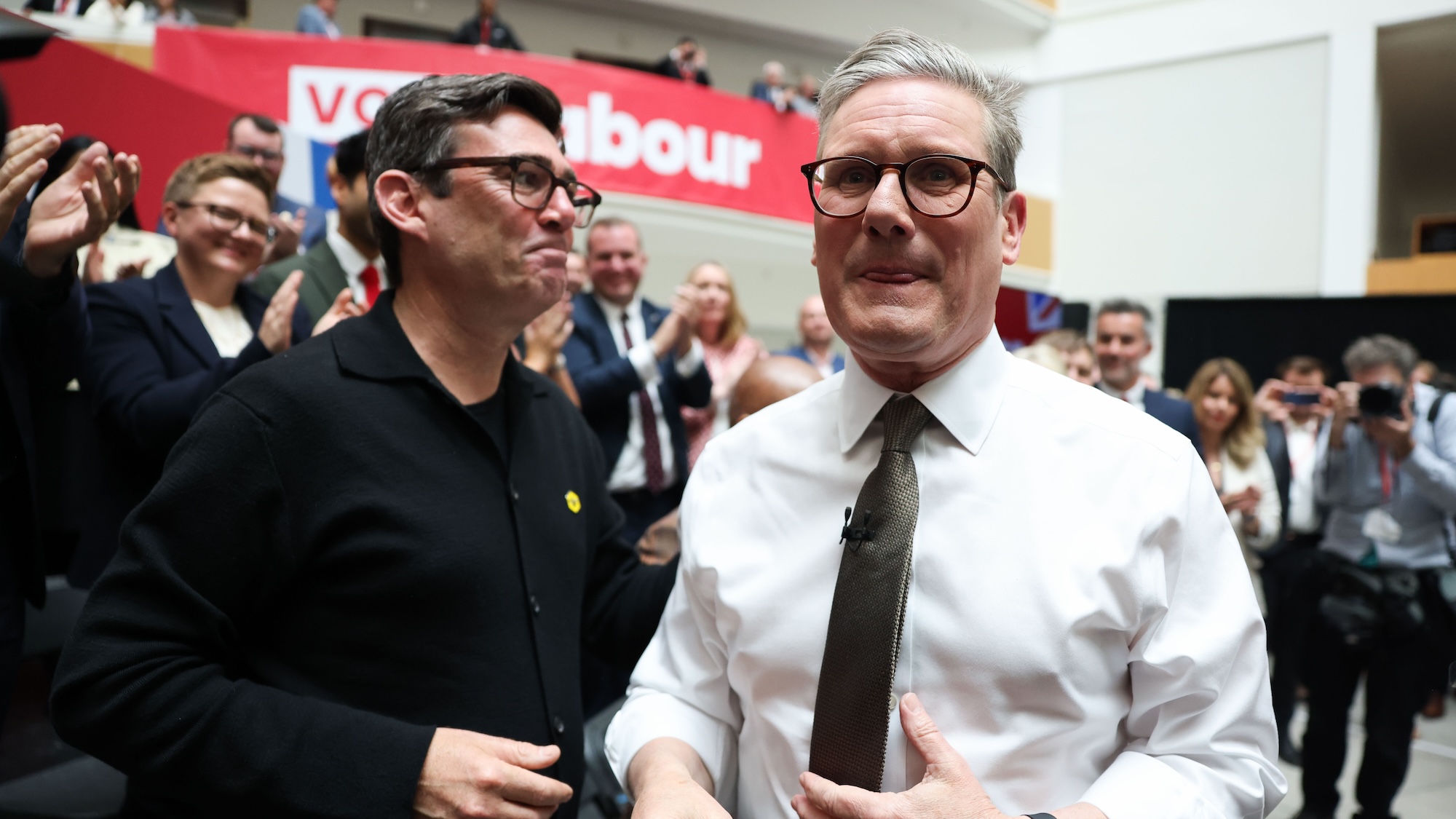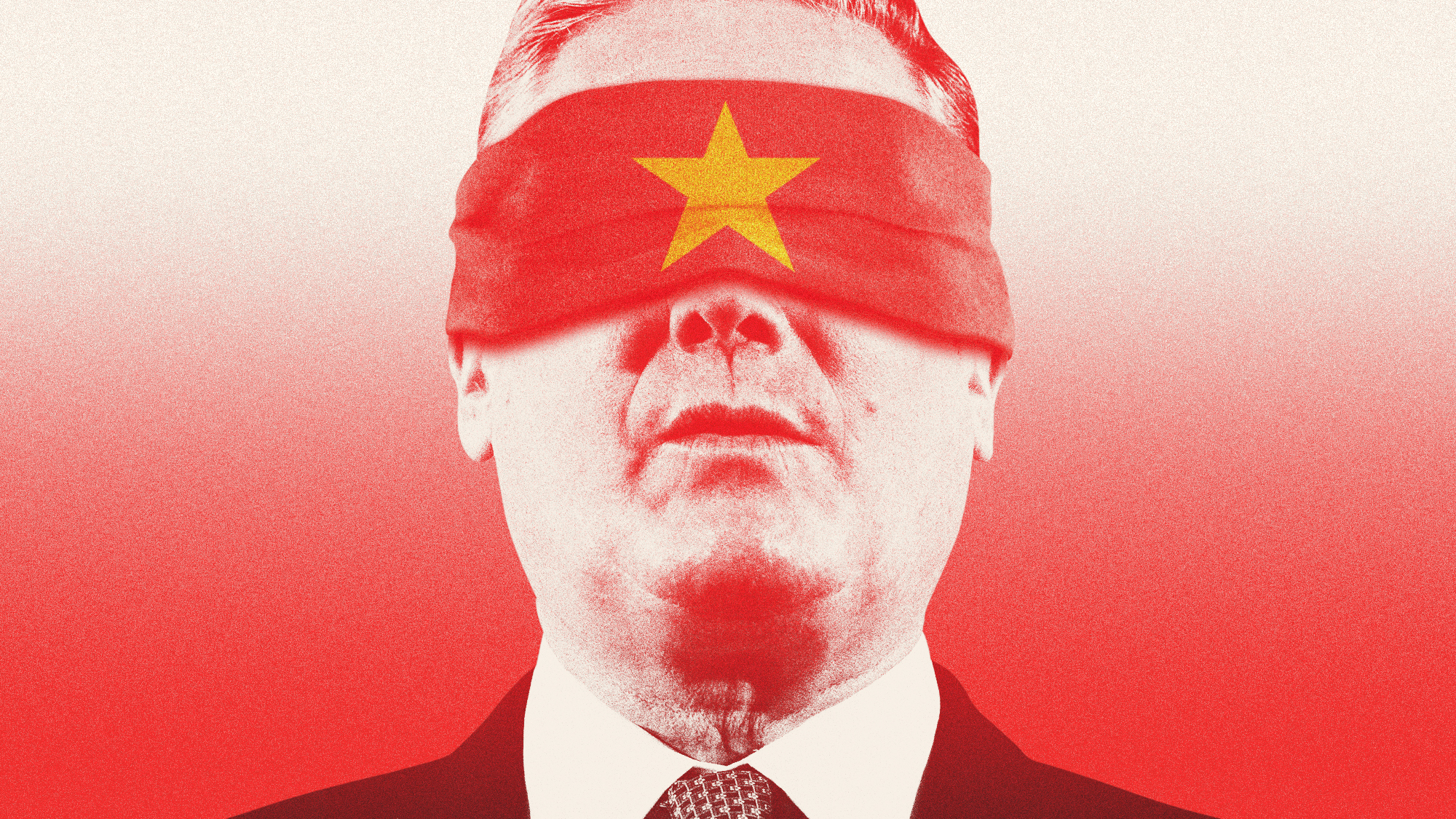Having a mayor: Starmer's struggles with his devolved leaders
The prime minister has faced public defiance from Labour's two most prominent mayors

Could there really be a push for new Labour leadership so soon after a crushing general election win? "Inside Labour there might not be a vacancy but there is always a contest," said The New Statesman's political editor George Eaton. And the government's declining approval ratings "means this is even truer than usual".
Starmer's troubles have opened the door for others to begin "positioning for a post-Starmer world", said Eaton. That includes Labour's two most prominent devolved leaders, the mayor of Manchester, Andy Burnham, and London's mayor, Sadiq Khan, who have made recent interventions that pile more pressure on Starmer.
'Unifying the popular left'
Khan has been a long-time ally of Starmer, but his recent contradictions of the government could lead "some to conclude that his patience with the limits imposed on him by his current role is running out" and that he may be "eyeing up a return to the Commons", said Tom Harris in The Telegraph.
The Week
Escape your echo chamber. Get the facts behind the news, plus analysis from multiple perspectives.

Sign up for The Week's Free Newsletters
From our morning news briefing to a weekly Good News Newsletter, get the best of The Week delivered directly to your inbox.
From our morning news briefing to a weekly Good News Newsletter, get the best of The Week delivered directly to your inbox.
Burnham, meanwhile, "regularly advertised himself as an alternative" in Starmer's "difficult early years" as Labour leader and is "most clearly" readying himself for the era after Starmer, said Eaton. In a speech to the soft-left group Compass at the weekend, he wasn't explicit as to "whether he hopes to lead this movement" of, as he put it, "unifying the popular left", but "he didn't need to" be.
His address "ultimately resembled a leadership manifesto", and though he didn't name either Starmer or Chancellor Rachel Reeves, he "repeatedly outflanked the government from the left" and called for a reversal of spending cuts and more radical taxes on wealth.
'A Labour government that is abandoning Labour values'
The government's current "defensive posture" against the right-wing "makes total sense" from an electoral standpoint, however, said Peter Franklin on UnHerd. Starmer "doesn't fear the left" because of the "sheer weakness of the left-wing opposition", but he is "adopting a defensive position out of fear of the populist right".
But there is a "danger for Starmer" in being "so explicit about seeing Nigel Farage as his main opponent", said John Rentoul in The Independent. It is fuelling "discontent among Labour MPs and members" and empowering the devolved leaders to publicly rebuke the government. Both Burnham and Khan – who has "struck poses" against Labour leadership in declaring Brexit a "mistake" and "proposing the decriminalisation of cannabis" – are "ready" if mounting pressures result in "destabilising the prime minister".
A free daily email with the biggest news stories of the day – and the best features from TheWeek.com
Burnham is "one of the more popular figures within Labour" currently, and "when he criticises the leadership, then that is publicly raising questions about Starmer", said Andrew Fisher in The i Paper. More concerningly for the prime minister, Burnham's appearance at the Compass event alongside "hard left" Labour figures shows an "emerging dialogue between two wings of the party" that are overcoming a "historic divide" to confront a "Labour government that is abandoning Labour values".
Richard Windsor is a freelance writer for The Week Digital. He began his journalism career writing about politics and sport while studying at the University of Southampton. He then worked across various football publications before specialising in cycling for almost nine years, covering major races including the Tour de France and interviewing some of the sport’s top riders. He led Cycling Weekly’s digital platforms as editor for seven of those years, helping to transform the publication into the UK’s largest cycling website. He now works as a freelance writer, editor and consultant.
-
 Child-free train carriages: has push for adults-only spaces gone too far?
Child-free train carriages: has push for adults-only spaces gone too far?Talking Point Under-12s ban on premium commuter train carriages in France sparks backlash across the political divide
-
 The best family board games
The best family board gamesThe Week Recommends Put down the smartphones and settle in for some old fashioned fun
-
 The world’s oldest rock art reveals hints about human migration
The world’s oldest rock art reveals hints about human migrationUnder the Radar The art is believed to be over 67,000 years old
-
 What is at stake for Starmer in China?
What is at stake for Starmer in China?Today’s Big Question The British PM will have to ‘play it tough’ to achieve ‘substantive’ outcomes, while China looks to draw Britain away from US influence
-
 Can Starmer continue to walk the Trump tightrope?
Can Starmer continue to walk the Trump tightrope?Today's Big Question PM condemns US tariff threat but is less confrontational than some European allies
-
 Alaa Abd el-Fattah: should Egyptian dissident be stripped of UK citizenship?
Alaa Abd el-Fattah: should Egyptian dissident be stripped of UK citizenship?Today's Big Question Resurfaced social media posts appear to show the democracy activist calling for the killing of Zionists and police
-
 Is Keir Starmer being hoodwinked by China?
Is Keir Starmer being hoodwinked by China?Today's Big Question PM’s attempt to separate politics and security from trade and business is ‘naïve’
-
 Nigel Farage’s £9mn windfall: will it smooth his path to power?
Nigel Farage’s £9mn windfall: will it smooth his path to power?In Depth The record donation has come amidst rumours of collaboration with the Conservatives and allegations of racism in Farage's school days
-
 ECHR: is Europe about to break with convention?
ECHR: is Europe about to break with convention?Today's Big Question European leaders to look at updating the 75-year-old treaty to help tackle the continent’s migrant wave
-
 The launch of Your Party: how it could work
The launch of Your Party: how it could workThe Explainer Despite landmark decisions made over the party’s makeup at their first conference, core frustrations are ‘likely to only intensify in the near-future’
-
 What does the fall in net migration mean for the UK?
What does the fall in net migration mean for the UK?Today’s Big Question With Labour and the Tories trying to ‘claim credit’ for lower figures, the ‘underlying picture is far less clear-cut’